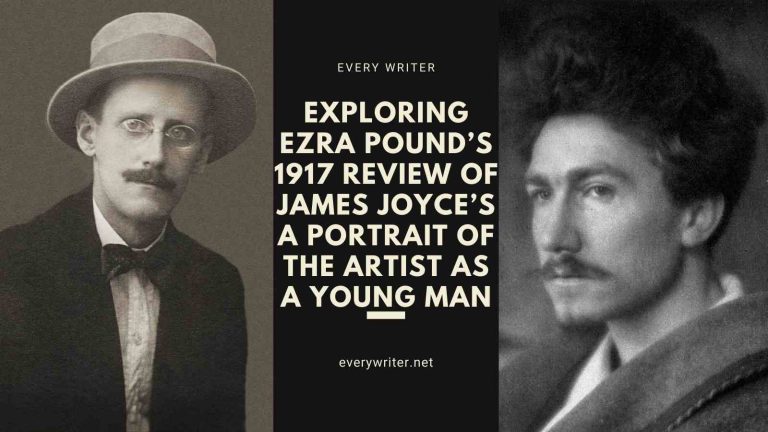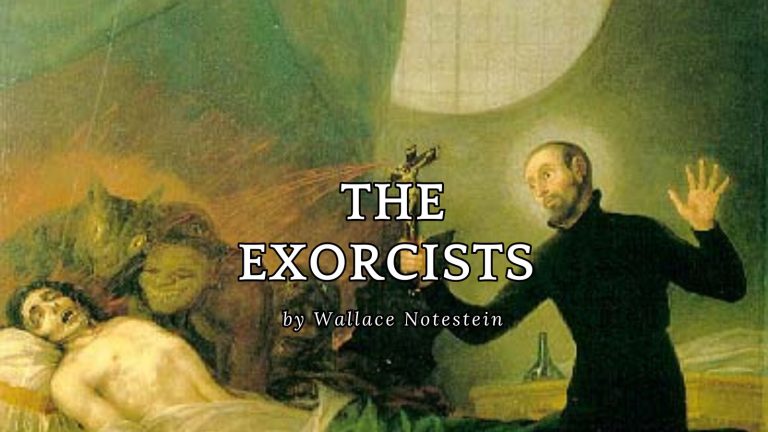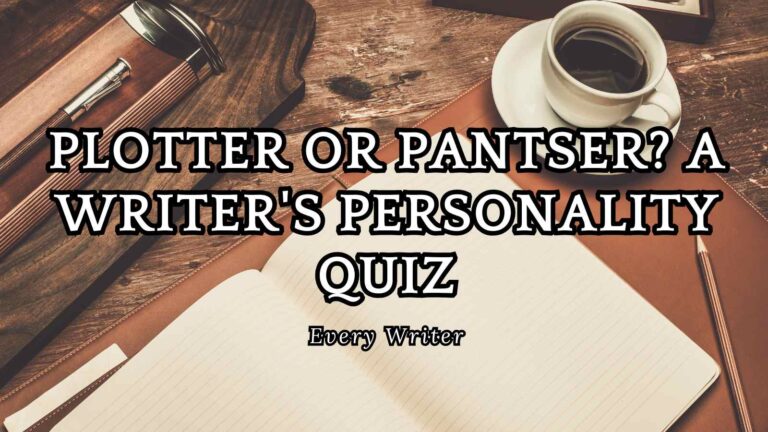William Shakespeare’s Influence
by William Dean Howells
 The establishment of our paper in the village where there had been none before, and its enlargement from four to eight pages, were events so filling that they left little room for any other excitement but that of getting acquainted with the young people of the village, and going to parties, and sleigh rides, and walks, and drives, and picnics, and dances, and all the other pleasures in which that community seemed to indulge beyond any other we had known. The village was smaller than the one we had just left, but it was by no means less lively, and I think that for its size and time and place it had an uncommon share of what has since been called culture. The intellectual experience of the people was mainly theological and political, as it was everywhere in that day, but there were several among them who had a real love for books, and when they met at the druggist’s, as they did every night, to dispute of the inspiration of the Scriptures and the principles of the Free Soil party, the talk sometimes turned upon the respective merits of Dickens and Thackeray, Gibbon and Macaulay, Wordsworth and Byron. There were law students who read “Noctes Ambrosianae,” the ‘Age of Reason’, and Bailey’s “Festus,” as well as Blackstone’s ‘Commentaries;’ and there was a public library in that village of six hundred people, small but very well selected, which was kept in one of the lawyers’ offices, and was free to all. It seems to me now that the people met there oftener than they do in most country places, and rubbed their wits together more, but this may be one of those pleasing illusions of memory which men in later life are subject to.
The establishment of our paper in the village where there had been none before, and its enlargement from four to eight pages, were events so filling that they left little room for any other excitement but that of getting acquainted with the young people of the village, and going to parties, and sleigh rides, and walks, and drives, and picnics, and dances, and all the other pleasures in which that community seemed to indulge beyond any other we had known. The village was smaller than the one we had just left, but it was by no means less lively, and I think that for its size and time and place it had an uncommon share of what has since been called culture. The intellectual experience of the people was mainly theological and political, as it was everywhere in that day, but there were several among them who had a real love for books, and when they met at the druggist’s, as they did every night, to dispute of the inspiration of the Scriptures and the principles of the Free Soil party, the talk sometimes turned upon the respective merits of Dickens and Thackeray, Gibbon and Macaulay, Wordsworth and Byron. There were law students who read “Noctes Ambrosianae,” the ‘Age of Reason’, and Bailey’s “Festus,” as well as Blackstone’s ‘Commentaries;’ and there was a public library in that village of six hundred people, small but very well selected, which was kept in one of the lawyers’ offices, and was free to all. It seems to me now that the people met there oftener than they do in most country places, and rubbed their wits together more, but this may be one of those pleasing illusions of memory which men in later life are subject to.
I insist upon nothing, but certainly the air was friendlier to the tastes I had formed than any I had yet known, and I found a wider if not deeper sympathy with them. There was one of our printers who liked books, and we went through ‘Don Quixote’ together again, and through the ‘Conquest of Granada’, and we began to read other things of Irving’s. There was a very good little stock of books at the village drugstore, and among those that began to come into my hands were the poems of Dr. Holmes, stray volumes of De Quincey, and here and there minor works of Thackeray. I believe I had no money to buy them, but there was an open account, or a comity, between the printer and the bookseller, and I must have been allowed a certain discretion in regard to getting books.
Still I do not think I went far in the more modern authors, or gave my heart to any of them. Suddenly, it was now given to Shakespeare, without notice or reason, that I can recall, except that my friend liked him too, and that we found it a double pleasure to read him together. Printers in the old-time offices were always spouting Shakespeare more or less, and I suppose I could not have kept away from him much longer in the nature of things. I cannot fix the time or place when my friend and I began to read him, but it was in the fine print of that unhallowed edition of ours, and presently we had great lengths of him by heart, out of “Hamlet,” out of “The Tempest,” out of “Macbeth,” out of “Richard III.,” out of “Midsummer-Night’s Dream,” out of the “Comedy of Errors,” out of “Julius Caesar,” out of “Measure for Measure,” out of “Romeo and Juliet,” out of “Two Gentlemen of Verona.”
These were the plays that we loved, and must have read in common, or at least at the same time: but others that I more especially liked were the Histories, and among them particularly were the Henrys, where Falstaff appeared. This gross and palpable reprobate greatly took my fancy. I delighted in him immensely, and in his comrades, Pistol, and Bardolph, and Nym. I could not read of his death without emotion, and it was a personal pang to me when the prince, crowned king, denied him: blackguard for blackguard, I still think the prince the worse blackguard. Perhaps I flatter myself, but I believe that even then, as a boy of sixteen, I fully conceived of Falstaff’s character, and entered into the author’s wonderfully humorous conception of him. There is no such perfect conception of the selfish sensualist in literature, and the conception is all the more perfect because of the wit that lights up the vice of Falstaff, a cold light without tenderness, for he was not a good fellow, though a merry companion. I am not sure but I should put him beside Hamlet, and on the name level, for the merit of his artistic completeness, and at one time I much preferred him, or at least his humor.
As to Falstaff personally, or his like, I was rather fastidious, and would not have made friends with him in the flesh, much or little. I revelled in all his appearances in the Histories, and I tried to be as happy where a factitious and perfunctory Falstaff comes to life again in the “Merry Wives of Windsor,” though at the bottom of my heart I felt the difference. I began to make my imitations of Shakespeare, and I wrote 57 out passages where Falstaff and Pistol and Bardolph talked together, in that Ercles vein which is so easily caught. This was after a year or two of the irregular and interrupted acquaintance with the author which has been my mode of friendship with all the authors I have loved. My worship of Shakespeare went to heights and lengths that it had reached with no earlier idol, and there was a supreme moment, once, when I found myself saying that the creation of Shakespeare was as great as the creation of a planet.
 There ought certainly to be some bound beyond which the cult of favorite authors should not be suffered to go. I should keep well within the limit of that early excess now, and should not liken the creation of Shakespeare to the creation of any heavenly body bigger, say, than one of the nameless asteroids that revolve between Mars and Jupiter. Even this I do not feel to be a true means of comparison, and I think that in the case of all great men we like to let our wonder mount and mount, till it leaves the truth behind, and honesty is pretty much cast out as ballast. A wise criticism will no more magnify Shakespeare because he is already great than it will magnify any less man. But we are loaded down with the responsibility of finding him all we have been told he is, and we must do this or suspect ourselves of a want of taste, a want of sensibility. At the same time, we may really be honester than those who have led us to expect this or that of him, and more truly his friends. I wish the time might come when we could read Shakespeare, and Dante, and Homer, as sincerely and as fairly as we read any new book by the least known of our contemporaries. The course of criticism is towards this, but when I began to read Shakespeare I should not have ventured to think that he was not at every moment great. I should no more have thought of questioning the poetry of any passage in him than of questioning the proofs of holy writ. All the same, I knew very well that much which I read was really poor stuff, and the persons and positions were often preposterous. It is a great pity that the ardent youth should not be permitted and even encouraged to say this to himself, instead of falling slavishly before a great author and accepting him at all points as infallible. Shakespeare is fine enough and great enough when all the possible detractions are made, and I have no fear of saying now that he would be finer and greater for the loss of half his work, though if I had heard any one say such a thing then I should have held him as little better than one of the wicked.
There ought certainly to be some bound beyond which the cult of favorite authors should not be suffered to go. I should keep well within the limit of that early excess now, and should not liken the creation of Shakespeare to the creation of any heavenly body bigger, say, than one of the nameless asteroids that revolve between Mars and Jupiter. Even this I do not feel to be a true means of comparison, and I think that in the case of all great men we like to let our wonder mount and mount, till it leaves the truth behind, and honesty is pretty much cast out as ballast. A wise criticism will no more magnify Shakespeare because he is already great than it will magnify any less man. But we are loaded down with the responsibility of finding him all we have been told he is, and we must do this or suspect ourselves of a want of taste, a want of sensibility. At the same time, we may really be honester than those who have led us to expect this or that of him, and more truly his friends. I wish the time might come when we could read Shakespeare, and Dante, and Homer, as sincerely and as fairly as we read any new book by the least known of our contemporaries. The course of criticism is towards this, but when I began to read Shakespeare I should not have ventured to think that he was not at every moment great. I should no more have thought of questioning the poetry of any passage in him than of questioning the proofs of holy writ. All the same, I knew very well that much which I read was really poor stuff, and the persons and positions were often preposterous. It is a great pity that the ardent youth should not be permitted and even encouraged to say this to himself, instead of falling slavishly before a great author and accepting him at all points as infallible. Shakespeare is fine enough and great enough when all the possible detractions are made, and I have no fear of saying now that he would be finer and greater for the loss of half his work, though if I had heard any one say such a thing then I should have held him as little better than one of the wicked.
Upon the whole it was well that I had not found my way to Shakespeare earlier, though it is rather strange that I had not. I knew him on the stage in most of the plays that used to be given. I had shared the conscience of Macbeth, the passion of Othello, the doubt of Hamlet; many times, in my natural affinity for villains, I had mocked and suffered with Richard III.
Probably no dramatist ever needed the stage less, and none ever brought more to it. There have been few joys for me in life comparable to that of seeing the curtain rise on “Hamlet,” and hearing the guards begin to talk about the ghost; and yet how fully this joy imparts itself without any material embodiment! It is the same in the whole range of his plays: they fill the scene, but if there is no scene they fill the soul. They are neither worse nor better because of the theatre. They are so great that it cannot hamper them; they are so vital that they enlarge it to their own proportions and endue it with something of their own living force. They make it the size of life, and yet they retire it so wholly that you think no more of it than you think of the physiognomy of one who talks importantly to you. I have heard people say that they would rather not see Shakespeare played than to see him played ill, but I cannot agree with them. He can better afford to be played ill than any other man that ever wrote. Whoever is on the stage, it is always Shakespeare who is speaking to me, and perhaps this is the reason why in the past I can trace no discrepancy between reading his plays and seeing them.
The effect is so equal from either experience that I am not sure as to some plays whether I read them or saw them first, though as to most of them I am aware that I never saw them at all; and if the whole truth must be told there is still one of his plays that I have not read, and I believe it is esteemed one of his greatest. There are several, with all my reading of others, that I had not read till within a few years; and I do not think I should have lost much if I, had never read “Pericles” and “Winter’s Tale.”
In those early days I had no philosophized preference for reality in literature, and I dare say if I had been asked, I should have said that the plays of Shakespeare where reality is least felt were the most imaginative; that is the belief of the puerile critics still; but I suppose it was my instinctive liking for reality that made the great Histories so delightful to me, and that rendered “Macbeth” and “Hamlet” vital in their very ghosts and witches. There I found a world appreciable to experience, a world inexpressibly vaster and grander than the poor little affair that I had only known a small obscure corner of, and yet of one quality with it, so that I could be as much at home and citizen in it as where I actually lived. There I found joy and sorrow mixed, and nothing abstract or typical, but everything standing for itself, and not for some other thing. Then, I suppose it was the interfusion of humor through so much of it, that made it all precious and friendly. I think I had a native love of laughing, which was fostered in me by my father’s way of looking at life, and had certainly been flattered by my intimacy with Cervantes; but whether this was so or not, I know that I liked best and felt deepest those plays and passages in Shakespeare where the alliance of the tragic and the comic was closest. Perhaps in a time when self-consciousness is so widespread, it is the only thing that saves us from ourselves. I am sure that without it I should not have been naturalized to that world of Shakespeare’s Histories, where I used to spend so much of my leisure, with such a sense of his own intimate companionship there as I had nowhere else. I felt that he must somehow like my being in the joke of it all, and that in his great heart he had room for a boy willing absolutely to lose himself in him, and be as one of his creations.
It was the time of life with me when a boy begins to be in love with the pretty faces that then peopled this world so thickly, and I did not fail to fall in love with the ladies of that Shakespeare-world where I lived equally. I cannot tell whether it was because I found them like my ideals here, or whether my ideals acquired merit because of their likeness to the realities there; they appeared to be all of one degree of enchanting loveliness; but upon the whole I must have preferred them in the plays, because it was so much easier to get on with them there; I was always much better dressed there; I was vastly handsomer; I was not bashful or afraid, and I had some defects of these advantages to contend with here.
That friend of mine, the printer whom I have mentioned, was one with me in a sense of the Shakespearean humor, and he dwelt with me in the sort of double being I had in those two worlds. We took the book into the woods at the ends of the long summer afternoons that remained to us when we had finished our work, and on the shining Sundays of the warm, late spring, the early, warm autumn, and we read it there on grassy slopes or heaps of fallen leaves; so that much of the poetry is mixed for me with a rapturous sense of the out-door beauty of this lovely natural world. We read turn about, one taking the story up as the other tired, and as we read the drama played itself under the open sky and in the free air with such orchestral effects as the soughing woods or some rippling stream afforded. It was not interrupted when a squirrel dropped a nut on us from the top of a tall hickory; and the plaint of a meadow-lark prolonged itself with unbroken sweetness from one world to the other.
But I think it takes two to read in the open air. The pressure of walls is wanted to keep the mind within itself when one reads alone; otherwise it wanders and disperses itself through nature. When my friend left us for want of work in the office, or from the vagarious impulse which is so strong in our craft, I took my Shakespeare no longer to the woods and fields, but pored upon him mostly by night, in the narrow little space which I had for my study, under the stairs at home. There was a desk pushed back against the wall, which the irregular ceiling eloped down to meet behind it, and at my left was a window, which gave a good light on the writing-leaf of my desk. This was my workshop for six or seven years, and it was not at all a bad one; I have had many since that were not so much to the purpose; and though I would not live my life over, I would willingly enough have that little study mine again. But it is gone an utterly as the faces and voices that made home around it, and that I was fierce to shut out of it, so that no sound or sight should molest me in the pursuit of the end which I sought gropingly, blindly, with very little hope, but with an intense ambition, and a courage that gave way under no burden, before no obstacle. Long ago changes were made in the low, rambling house which threw my little closet into a larger room; but this was not until after I had left it many years; and as long as I remained a part of that dear and simple home it was my place to read, to write, to muse, to dream.
I sometimes wish in these later years that I had spent less time in it, or that world of books which it opened into; that I had seen more of the actual world, and had learned to know my brethren in it better. I might so have amassed more material for after use in literature, but I had to fit myself to use it, and I suppose that this was what I was doing, in my own way, and by such light as I had. I often toiled wrongly and foolishly; but certainly I toiled, and I suppose no work is wasted. Some strength, I hope, was coming to me, even from my mistakes, and though I went over ground that I need not have traversed, if I had not been left so much to find the way alone, yet I was not standing still, and some of the things that I then wished to do I have done. I do not mind owning that in others I have failed. For instance, I have never surpassed Shakespeare as a poet, though I once firmly meant to do so; but then, it is to be remembered that very few other people have surpassed him, and that it would not have been easy.
- 8 Authors Who Created Literary Masterpieces Keeping Their Day Jobs - March 31, 2025
- Plotter or Pantser? A Writer’s Personality Quiz - March 30, 2025
- 100 Must-Try Mystery Writing Prompts (Solve the Perfect Crime!) - March 22, 2025






